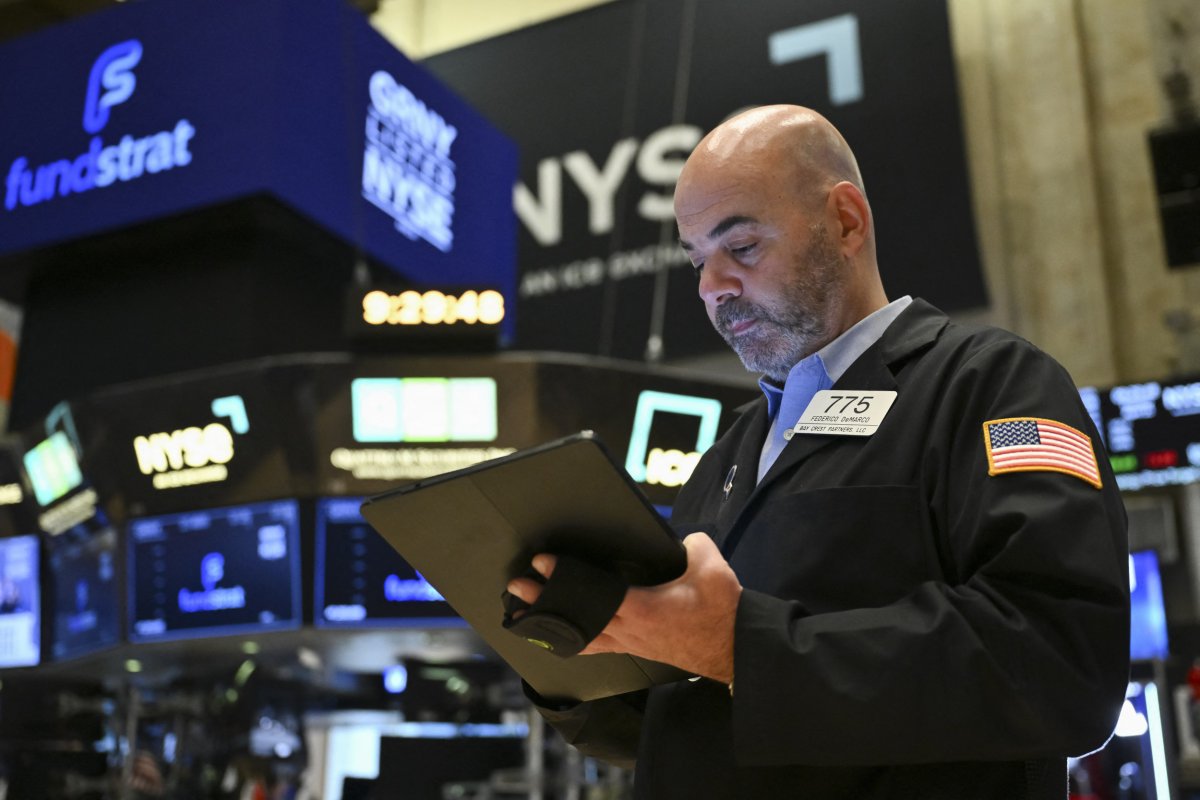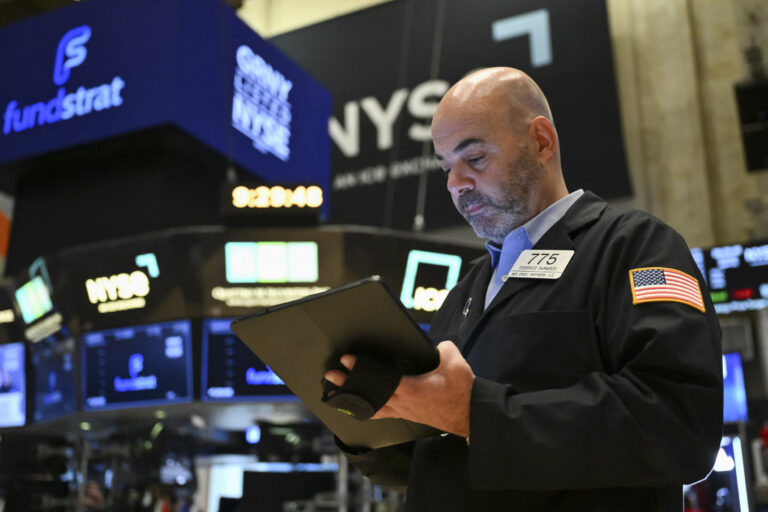President Donald Trump’s unleashing of tariffs is a “major negative shock” to the global economy, which will shave half a percentage point off GDP growth in 2025, according to the International Monetary Fund (IMF).
The IMF slashed its global growth forecast to 2.8 percent for the year, down from 3.3 percent, and warned that the “unpredictability with which these measures have been unfolding” makes it “more difficult than usual” to form its projections.
Why It Matters
Markets have dropped sharply as a result of the tariffs and the expectation that they will drag the global economy down. There is even talk of a recession in the United States. Trump’s handling of the economy, once an asset, is increasingly in doubt among voters.
What To Know
The IMF sees the world’s two largest economies, China and the U.S., weakening. U.S. economic growth is expected to come in at just 1.8 percent this year, down sharply from its previous forecast of 2.7 percent and a whole percentage point below its 2024 expansion.
While the IMF does not expect a U.S. recession, it has raised its odds of one in 2025 from 25 percent to about 40 percent.
China, an export-reliant economy, is now projected to expand 4 percent this year and next, down roughly half a point from its previous forecasts.

ANGELA WEISS/AFP via Getty Images
Trump imposed tariffs on U.S. trading partners worldwide, starting with a 10 percent baseline and then an additional, individualized “reciprocal” rate to reflect the barriers he said the U.S. faces.
He has since temporarily paused the reciprocal tariffs to allow for trade negotiations. The exception is China, with which the U.S. is engaged in a full-blown trade war, spanning tariffs and other anti-trade measures, such as export controls.
Tariffs of 25 percent on aluminum, steel, and autos remain in place.
“At this critical juncture, countries should work constructively to promote a stable and predictable trade environment and to facilitate international cooperation, while addressing policy gaps and structural imbalances at home,” the IMF said in its updated 2025 World Economic Outlook.
“This will help secure both internal and external economic stability.”
What People Are Saying
Pierre-Olivier Gourinchas, chief economist at the IMF, said: “We are entering a new era. This global economic system that has operated for the last eighty years is being reset.”
A research briefing from the Oxford Economics consultancy said: “We appear to be witnessing the beginning of a new global economic and market paradigm. The catalyst is a shift back to international economic policies driven by narrow self-interest—a fundamental change that will have lasting implications.”
What Happens Next
The Trump administration is in trade talks with at least 15 countries during the reciprocal tariff pause. Securing these deals and others, including the challenging task of resolving trade issues with China, will be key to restabilizing the global economy.
This article includes reporting by the Associated Press.
Update 4/22/25, 12:16 p.m. ET: This article was updated with additional information.


